Table of Contents
Key Takeaways
- Melatonin Production and Function: Melatonin is a hormone produced by the pineal gland, playing a crucial role in regulating the sleep wake cycle and circadian rhythm. It acts as a central clock for the body, signaling when to be active and when to rest.
- Health Benefits and Uses: Melatonin is not only a sleep aid but also a powerful antioxidant that protects against neurodegenerative diseases, reduces stroke risk, and aids in brain recovery post-trauma. It also supports the immune system and may help in managing mild cognitive impairment.
- Melatonin Supplements: While melatonin supplements can help with sleep disorders like insomnia and jet lag, there is significant variability in the content of over-the-counter products. It’s essential to start with a low dose and adjust as needed.
- Potential Side Effects and Interactions: Melatonin can cause side effects such as drowsiness, headaches, and hormonal imbalances. It may interact with various medications, including blood thinners and contraceptives, and should be used cautiously by those with hormone-related issues.
- Natural Sources and Alternatives: Montmorency Tart Cherry Juice is a natural source of melatonin and can be an alternative to synthetic supplements. It’s recommended for those looking to enhance sleep quality without the potential side effects of synthetic melatonin.
Melatonin (N-acetyl-5-methoxytryptamine) is a hormone primarily produced in the pineal gland. This gland is a pea-sized organ located in the center of your brain and shaped like a tiny pine cone (hence its name).
Your pineal gland is filled with cells that respond to light and darkness. Many Eastern traditions refer to the pineal gland as the “third eye” for this reason.
Your pineal gland acts as your body’s central clock through its melatonin secretion and then attaching to melatonin receptors. Affecting your sleep wake cycle. Telling your brain, body and organs when it’s time to be active and when it’s time to rest. This is the reason why melatonin is referred to as the “sleep hormone”.
The pineal hormone Melatonin is also a powerful antioxidant. It scavenges free radicals and reactive nitrogen species. It protects mitochondrial ATP synthesis. And melatonin is set apart from many other supplemental antioxidants because it easily crosses the blood-brain barrier.
Age-related decline in melatonin is a primary contributing factor to several neurodegenerative diseases including Alzheimer’s, Parkinson’s, ALS, Huntington’s Disease, stroke and brain trauma.[i]
Melatonin helps:
- Sleep. Melatonin is a powerful sleep aid and melatonin administration makes this hormone registered as a drug in Europe for that purpose.[ii]
- Neuroprotection. Melatonin helps protect neurons by reducing the damage caused by amyloid proteins and tau proteins linked to Alzheimer’s Disease. Melatonin supplements appear to protect against the harmful effects of aluminum.[iii] And melatonin scavenges free radicals of oxygen and nitrogen, neutralizes other toxic radicals, stimulates gene expression of other antioxidants, and protects ATP synthesis.[iv]
- Neurotransmitters. Research suggests Melatonin regulates dopamine production and pathways in areas of your brain involved in movement disorders such as Parkinson’s Disease and tardive dyskinesia. Melatonin also interacts with dopamine’s role in your body’s biological clock.[v]
Melatonin Overview
Melatonin (N-acetyl-5-methoxytryptamine) is a hormone produced in your pineal gland. Melatonin is often referred to as the “sleep hormone”. As your body’s central clock, melatonin tells your body, brain and organs when to be active and when to take a break and rest.

Melatonin synthesis and the neurotransmitter serotonin are both derived from the amino acid L-tryptophan. First L-tryptophan is hydroxylated by the enzyme tryptophan hydroxylase. This intermediate is decarboxylated by the active form of Vitamin B6 (PLP) and 5-hydroxy-L-tryptophan (5-HTP) to produce serotonin (5-HT or 5-hydroxytryptamine).
Serotonin acts as a neurotransmitter on its own. But is also converted into N-acetyl-serotonin by the enzymes serotonin N-acetyl transferase and Acetyl-CoA. Hydroxyindole O-methyl transferase and SAMe convert N-acetyl-serotonin into melatonin through methylation of the hydroxyl group.[vi]
This process is first fueled by the tryptophan you get from foods like turkey, chicken, tuna, oats, bananas, peanuts and chocolate. Or from a L-tryptophan supplement.
You can also supplement with 5-HTP to produce serotonin in your central nervous system which will then create melatonin. Or supplement with SAMe increase plasma melatonin levels. Or you can take a melatonin supplement on its own and bypass this entire process.
Besides acting as your body’s biological clock, endogenous melatonin is also a potent free-radical scavenger. And a wide-spectrum antioxidant. The beauty of melatonin as an antioxidant is its ability to easily cross the blood-brain barrier.
Adding melatonin to your nootropic stack gives you a head-start in protecting yourself against Alzheimer’s and Parkinson’s Disease, decreases your chance of stroke, and helps reverse the brain damage caused by stroke or brain injury.
Melatonin plays a role in a good night’s sleep and feeling refreshed the next day. With your brain firing on all cylinders.
The Effects of Melatonin in Your Brain
Melatonin helps brain health and function in several ways. But two in particular stand out.
Melatonin for sleep disorders
- Melatonin promotes quality sleep. Your pineal gland acts as your body’s central clock by secreting endogenous melatonin. This action tells your brain and other organs when it’s time to be active, and when it’s time to rest. Melatonin helps regulate other hormones and maintains your body’s circadian rhythm.[vii]
Your pineal gland responds to darkness by producing endogenous melatonin. Blood levels of endogenous melatonin are low during the day, with peak levels occurring from 2 – 4 AM.[viii]
One study at Duke University Hospital surveyed clinical trials from 1948 – 2009. Researchers found that children with ADHD using melatonin treatment doses of 3 – 6 mg showed improvement in how fast the kids went to sleep. And significantly better quality of sleep.[ix]
Another extensive survey of clinical trials was conducted by the U.S. Department of Health and Human Services on melatonin use in clinical sleep medicine.
The overall conclusion of these randomized controlled trials showed melatonin products were effective in improving quality of sleep and how fast a person went to sleep. This study included those who did not suffer with insomnia, those who did, and others who had messed up circadian rhythm patterns due to shift work disorder and jet lag.[x]
Melatonin helpful for your immune system
- Melatonin prevents neurodegenerative disease. Melatonin improves longevity by increasing the longevity gene called SIRT1. This gene plays an important role in maintaining metabolism and neuroplasticity.[xi]
Melatonin is a powerful antioxidant protecting your brain from free radicals and oxidative damage. It stimulates gene expression of intracellular antioxidant systems. And melatonin helps relieve the free radical damage that occurs after traumatic brain injury or stroke.[xii]
Research has found that melatonin levels and Alzheimer’s Disease are closely linked. Greatly reduced melatonin levels have been found in Alzheimer’s patients.[xiii]
High levels of melatonin are maintained throughout your youth and middle age. But as you age and melatonin levels drop you are at greater risk for brain damage both now and in the future. Your chances of having a stroke greatly increase as melatonin levels decline.[xiv]
How things go bad when melatonin levels are low
Low levels of Melatonin are associated with a variety of health problems. Much more than just insomnia.
↑ Insomnia, restlessness and poor sleep quality (sundowning)
↓ Circadian rhythm goes out of sync resulting in daytime drowsiness
↑ Agitation and activity increases later in the day (sundowning)
↓ Benzodiazepines like Valium® and Xanax® suppress melatonin levels[xv]
↑ Stroke risk increases
Melatonin deficiency is one of the earliest indicators of Alzheimer’s Disease.[xvi] Abnormal oxidation and inflammatory protein accumulation can lead to Parkinson’s Disease. And is associated with low levels of melatonin in the brain.
Low levels of melatonin lead to increased free radical production and risk of stroke goes up. And oxidative damage to brain cells is a leading culprit in traumatic brain injury.
Melatonin dietary supplement benefits
Melatonin is both a neurotransmitter and hormone. Melatonin production takes place in your pineal gland from the neurotransmitter serotonin with the assistance of SAMe and other enzymes.
Melatonin is the mechanism used by your pineal gland to function as your body’s biological “clock”. And is in charge of the “circadian rhythm” that tells your system when to be active, and when to rest.
As a nootropic supplement and sleep aid, melatonin exerts its effects by acting as a ‘phase re-setter’ rather than as a hypnotic-type drug.
Melatonin natural health products and supplements are inexpensive. And may help with delayed sleep phase syndrome and help restore your body’s natural antioxidant protection. Guarding against age-related changes in your brain.
Melatonin protects cholinergic neurons from the amyloid and tau protein buildups related to Alzheimer’s Disease.
Melatonin offers potent antioxidant protection for your brain. Supplementing with melatonin helps protect your brain against neurodegenerative disease, reduces stroke risk and guards against brain trauma. And may help with circadian rhythm sleep disorders.
How does Melatonin feel?
I no longer use melatonin to help me sleep. Instead, I prefer Performance Lab® Sleep which contains 100 mg of Magnesium (as Magnesium Bisglycinate, Magnesium Taurate, and NutriGenesis® Magnesium), 500 mg of tart cherry extract, and 250 mg of L-Tryptophan.
Montmorency tart cherry contains the richest natural source of melatonin. Identical to the hormone secreted by the pineal gland in your brain. And does not leave you hungover the next day like synthetic melatonin supplements do.
Melatonin as a sleep aid has mixed reviews among neurohackers. And for good reason. Melatonin is a hormone that your body naturally produces from serotonin. Too much melatonin is not good.
And part of the problem could be attributed to the synthetic melatonin nutritional supplements marketed to promote sleep. A study published in the Journal of Sleep Medicine found that synthetic melatonin content in the tested supplements ranged from -83% to + 478%. Contrary to what was claimed on sleep supplement labels. And 8 of the 31 supplements tested contained undisclosed and illegal serotonin.
Some find that supplementing with melatonin works well, and others find it disrupts sleep patterns. If you are perfectly healthy and do not deal with insomnia on a regular basis you don’t need to supplement with melatonin.
Everyone’s body chemistry is unique. Some find that ½ mg of melatonin works well. And others require 5 mg. Experimentation is key with this hormone.
Some have found that melatonin helps regulate disrupted circadian rhythms caused by jet lag or night shift work.
Melatonin Clinical Research
Melatonin Lowers Cholesterol
Melatonin levels decrease as we age, and the possibility of heart disease increases. And studies in the last 10 years show that melatonin and your cardiovascular system are linked. Patients with cardiovascular disease have decreased melatonin levels.
Studies also show that people with heart disease have high levels of LDL-cholesterol. Research has found that supplemental melatonin decreases cholesterol by 38%. And reduces LDL accumulation by 42%.
One study demonstrated that just 1 mg of melatonin reduced blood pressure within 90 minutes of supplementation. Melatonin reduces blood pressure through its antioxidant properties, by decreasing norepinephrine and epinephrine, and relaxing the smooth muscle of the heart aorta wall.[xvii]
Melatonin helps Reduce Insomnia
Studies show that sleep problems affect 50 – 70 million Americans, or about 20% of the population. A sleep disorder exists whenever a lower quality of sleep results in impaired functioning, or excessive daytime sleepiness. Insomnia is the most common sleep disorder affecting 6 – 12% of the adult population.
A double-blind placebo-controlled study in France worked with 244 adults with primary insomnia. Patients received extended-release melatonin nightly for up to 12 months of the trial, followed by a 2-week withdrawal period.
Outcome was measured based on the patient’s sleep diary, adverse events, vital signs and lab tests recorded at each visit. The study concluded that extended-release melatonin was helpful in relieving insomnia during the trial. And patients did not experience any adverse events or withdrawal symptoms when they stopped using melatonin.[xviii]
Melatonin Relieves Mild Cognitive Impairment
Mild cognitive impairment (MCI) is often the final step before dementia. Approximately 12% of MCI patients convert to Alzheimer’s Disease or other dementia disorders every year.
Researchers in Argentina took a look at the first and final assessment of 50 MCI patients, 25 of whom had received a daily dose of 3-9 mg of melatonin at bedtime for 9 – 18 months.
Patients who took melatonin showed significantly better performance in the mini Mental State examination and the cognitive test used to assess Alzheimer’s. The team conducted several other tests and found better performance in every test but one.
The researchers concluded that melatonin can be a useful drug for treating mild cognitive impairment.[xix]
Melatonin Replaces Benzos for Sleep
Many people use benzodiazepines for sleep. Drugs like Xanax®, Valium® and Ativan® all have nasty side effects. And studies going back 25 years show benzos depress natural melatonin levels.[xx]
This is a problem because drugs taken for sleep are depleting the very hormone your body uses for sleep. To make matters worse, regular benzodiazepine use is now recognized as putting you at greater risk for dementia.[xxi]
This study done in Argentine had subjects use fast release melatonin 3 – 9 mg daily for 3 years just before bedtime. And it significantly improved cognitive and emotional performance. Including the daily sleep-awake cycles of patients.
A follow up study was done with 91 MCI patients. 61 patients received 3 – 24 mg of fast release melatonin at bedtime for 15 to 60 months. Patients given melatonin showed significantly better cognitive performance and every other parameter tested.
Depression scores in the patients also decreased. And showed an improvement in quality of sleep and wakefulness. Before the study began, 62.8% of the patients were using benzodiazepines to help them sleep. At the conclusion of the study only 9.8% were using benzos to help them sleep along with melatonin.[xxii]
Our recommendation is if you are using one of these drugs for sleep, it would be wise to start using melatonin instead. And start weaning yourself off the benzos.
Melatonin Recommended Dosage
Unlike all the other nootropics I talk about on Nootropics Expert, there is no recommended dosage for melatonin supplementation. Everyone has different responses to its effects.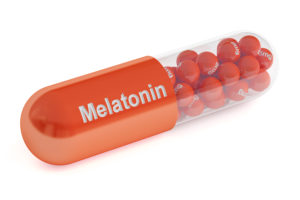
Lower doses like ½ mg of melatonin work well for some who are especially sensitive. And higher doses of melatonin can cause anxiety and irritability.
The best approach is to start with very low doses of melatonin (i.e. ½ mg) and see how your body reacts.
The right dose should produce a restful night’s sleep with no irritability or fatigue the next day.
For jet lag: ½ – 5 mg of melatonin an hour before bedtime at your final destination.
Melatonin Side Effects
Melatonin is considered very safe when taken in normal recommended low doses.
Some may experience nightmares or vivid dreams when supplementing with melatonin.
Melatonin could lower blood sugar levels. Taking melatonin supplements along with diabetes medications may cause blood sugar levels to drop too low.
Melatonin can cause drowsiness if taken during the day. And if you experience a “sleep hangover” the next day, you took too much melatonin the night before.
Other side effects include abdominal cramps, dizziness, headache, irritability, decreased libido, breast enlargement in men and reduced sperm count.
Melatonin can interfere with fertility if you’re trying to get pregnant. Do not use melatonin while you’re pregnant. Birth control (contraceptive drugs) interact with melatonin and may increase your melatonin levels more than you intended.
Studies have shown that melatonin increases estrogen receptor binding activity of breast cancer cells. So if you are dealing with breast cancer you should avoid supplementing with melatonin.
Melatonin can worsen symptoms of depression. So if you’re dealing with depression, or are using antidepressant medications you should avoid melatonin.
Remember that melatonin is a hormone. So if you have hormone-related issues you must be careful about using melatonin.
Melatonin slows blood clotting and increase the risk of bleeding and should be avoided if you’re taking anticoagulant medications. Or are anticipating surgery.
Melatonin can interfere with steroids and immunosuppressant medications and cause them to lose their effectiveness.
Type of Melatonin to Buy
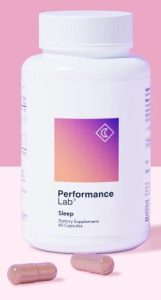 Melatonin is available in capsules, tablets and liquid. Capsules and tablets usually range from 1 – 5 mg.
Melatonin is available in capsules, tablets and liquid. Capsules and tablets usually range from 1 – 5 mg.
See the section above called “How does Melatonin feel?” which details problems with melatonin supplements. And why you should be cautious about your choice of melatonin supplement if you choose to use it.
I recommend Montmorency Tart Cherry Juice concentrate which is nature’s best natural source of melatonin.
You can get 500 mg Montmorency Tart Cherry (as CherryPURE®) in Performance Lab® – Sleep which also contains 100 mg of Magnesium (as Magnesium Bisglycinate and NutriGenesis® magnesium) and 250 mg of L-Tryptophan for a great night’s sleep.
Nootropics Expert Recommendation
Melatonin 1 – 3 mg per day.
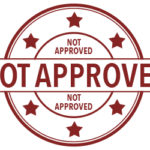 I do not recommend melatonin as a nootropic supplement. But see my review above on how melatonin supplements vary and how melatonin supplement labels can be misleading.
I do not recommend melatonin as a nootropic supplement. But see my review above on how melatonin supplements vary and how melatonin supplement labels can be misleading.
Your body does make endogenous melatonin on its own from serotonin in your brain. Most healthy people have an adequate supply of melatonin. But if you’re dealing with insomnia and need some extra help in getting to sleep and staying asleep, melatonin can help.
Melatonin easily crosses the blood-brain barrier, and takes effect in about 90 minutes. Avoid taking melatonin immediately before bed because you may have trouble falling asleep increasing your melatonin levels may help.
Melatonin for jet lag
Melatonin is especially helpful to those dealing with jet lag or shift work that has you working nights. Disrupted natural circadian rhythms can be normalized by supplementing with melatonin.
If you are going to try supplementing with Melatonin then I suggest I suggest trying a melatonin supplement first at a dose of ½ – 1 mg taken 90 minutes before bedtime. And see how you feel. If you readily fall and stay asleep until morning you know you’ve got the dose right.
Then adjust your dose up or down depending on how you react. Most people don’t need more than o.5 – 5 mg per night.
I recommend Montmorency Tart Cherry Juice concentrate which is nature’s best natural source of melatonin.
You can get 500 mg Montmorency Tart Cherry (as CherryPURE®) in Performance Lab® – Sleep which also contains 100 mg of Magnesium (as Magnesium Bisglycinate and NutriGenesis® magnesium) and 250 mg of L-Tryptophan for a great night’s sleep.

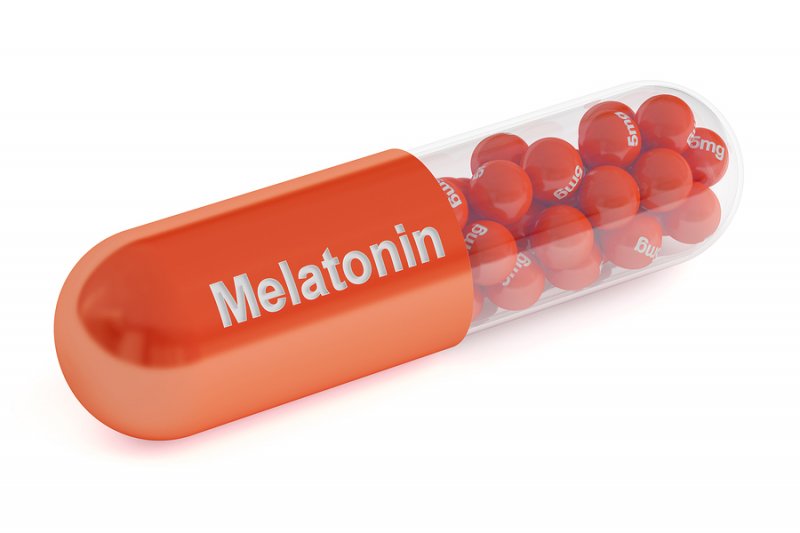
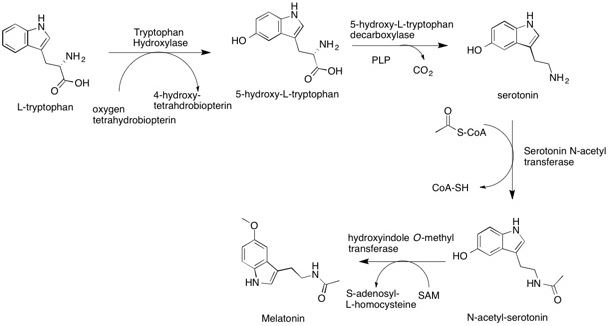







Join The Discussion - 70 comments
SHARON
January 8, 2025
there was an expert on melatonin, that studied it for many many years , and says its very safe even at high doses for brain health
David Tomen
January 9, 2025
Sharon, that was one person out of how many billions on this planet? Talk to anyone who using a high dose melatonin supplement and ask them how they feel.
Nico
May 9, 2024
Life Extension Tart-Cherry-with-CherryPURE
Is it just me or is it too little melatonin?
I asked LE, the answer:
I read that it contains natural melatonin, is this true? Approximately how much melatonin can 500 mg contain?
–
Verified Reply – Janelly
The quantity of melatonin present can fluctuate but generally does not exceed 38 mcg per gram. As each capsule contains 480mg of Tart Cherry powder, the amount of melatonin per capsule would not surpass 18.24 mcg.
David Tomen
May 9, 2024
Nico, Tart Cherry is an excellent source of Tryptophan and melatonin. Don’t forget that these natural forms are often going to be used more effectively than using synthetic forms. You naturally use approx. 0.5 – 0-.8 mg melatonin during the night.
Szilvia
April 26, 2024
Sorry for so many questions, does melatonin interact with St. John’s wort?
David Tomen
April 26, 2024
No
John
January 15, 2024
What can help seriously increase N-Acetylserotonin?
I think this is a very powerful nootropic target for brain recovery.
David Tomen
January 17, 2024
John, N-Acetylserotonin (NAS) is an intermediate involved in converting serotonin to melatonin. You cannot buy it as a supplement. And you can naturally produce it my using L-Tryptophan to make serotonin. Which your body and brain will naturally convert to melatonin.
Nori
October 21, 2023
Regarding the genitals of adolescents/children. https://doi.org/10.1111/jpc.12840
About supplements https://doi.org/10.5664/jcsm.6434 https://www.mayoclinicproceedings.org/article/S0025-6196(11)63555-6/fulltext
David Tomen
October 26, 2023
Nori, completely relevant and especially the problem with poor quality control and dosage problems with melatonin. It should not be given to children in my opinion. I don’t even recommend using Melatonin in adults. There are safer ways to naturally increase melatonin than by supplementing with it.
Rese
May 8, 2023
Raw pistachios have the highest concentration of melatonin, isn’t it better to use them?
https://pubmed.ncbi.nlm.nih.gov/24878439/
David Tomen
May 8, 2023
Rese, I am not sure how you deduced the pistachios had the “highest” amounts of melatonin. Because that study talks about how it was extracted from pistachios. Melatonin is also present in a lot of other fruits, vegetables and nuts: https://www.sciencedirect.com/science/article/abs/pii/S0963996922013308.
The most effective source of natural melatonin I’ve been able to find is from Montmorency Tart Cherry Juice. And you don’t need to extract it. All you need is a glass of juice before bed.
Dan
March 24, 2023
how much melatonin is in CherryPURE 500mg?
David Tomen
March 31, 2023
Dan I really suck at math but you’ll find your answer here: https://pubmed.ncbi.nlm.nih.gov/11600041/
Dan
March 24, 2023
Isn’t the synthetic hormone identical to the hormone secreted by the pineal gland in your brain? It’s just odd that cherry can have the same melatonin as the human brain.
Also I’m curious to know your opinion, many people write that taking melatonin can reduce/suppress your own melatonin production, even in the long run?*
David Tomen
March 31, 2023
Dan, scroll back up and read the study linked to in the section called “How does Melatonin feel?”
Melatonin is a hormone. How it is produced in your body and VERY different than how it is chemically synthesize in the lab and sold as a supplement. Turns out the melatonin from Montmorency Tart Cherry is a bio-identical hormone.
And this “suppressing your own _____ product” comes up all the time. But what if your body cannot produce enough to start with? Ask them that and see the blank look on their face.